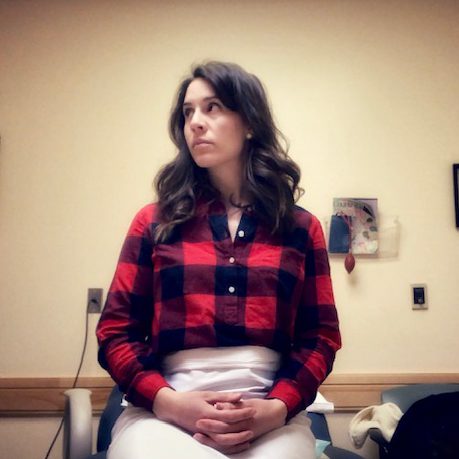Colon & Rectal Cancer Symptoms as Described by Real Cancer Patients
Colorectal cancer is the third most common cancer diagnosed in both men and women worldwide. Recognizing the signs and symptoms of colorectal cancer is crucial for early detection and successful treatment.
The colon, or large intestine, and rectum are integral parts of the digestive system, playing key roles in processing and eliminating waste from the body. Colorectal cancer, which encompasses both colon cancer and rectal cancer, can manifest through various symptoms, such as changes in bowel habits, rectal bleeding, itching, discomfort in the abdominal area, and weakness. Sometimes, especially for earlier stage (1, 2) cancer, there are no symptoms at all.
Importantly, these symptoms can be indicative of several other unrelated conditions, including ulcers, colitis, and hemmorrhoids, making it essential to consult a healthcare professional for accurate evaluation and diagnosis.
Below is how our colon cancer patients describe symptoms, along with guidelines from the National Cancer Institute. This is to give real patient examples and is not a substitute for medical advice.
If you are feeling any symptoms, please check in with a doctor, especially if symptoms last more than two weeks.
Overview
It often begins as small, noncancerous polyps that can eventually turn into cancer if left untreated. Polyps can be routinely detected through a colonoscopy, a procedure that enables the examination of the colon and rectum for any abnormalities or signs of cancer. In the United States, it’s recommended anyone without a history of related illnesses or family history be screened at age 45. It’s crucial to understand the symptoms and risk factors associated with colorectal cancer to facilitate early detection and effective management.
Signs and symptoms of colon cancer
Real-life patient stories can offer valuable insights into the signs and symptoms of colorectal cancer, providing a better understanding of the disease in human terms.
- Change in your bowel habits
- Persistent diarrhea or constipation without apparent cause
- Change in stool consistency or appearance, narrower than usual
- Bleeding
- Blood in/on your stool (bright red or very dark)
- Abdominal Discomfort
- Stomach pain, aches
- Discomfort, bloating, fullness
- Persistent cramps
- Excessive Fatigue and Weight Loss without Dieting
- Feeling very tired
- Unintentional weight loss and/or loss of appetite
- Anemia
- Low red blood cell count
- Fatigue, pale skin, and shortness of breath
- Vomiting
- No symptoms
- Colon and colorectal cancer may not show symptoms, especially in the beginning stages. This is why the NCI advocates getting screened regularly. This is how both Shannon Mercurio and Chris Tarver discovered their colon cancers.
Is it IBS, IBD, or Colon Cancer?
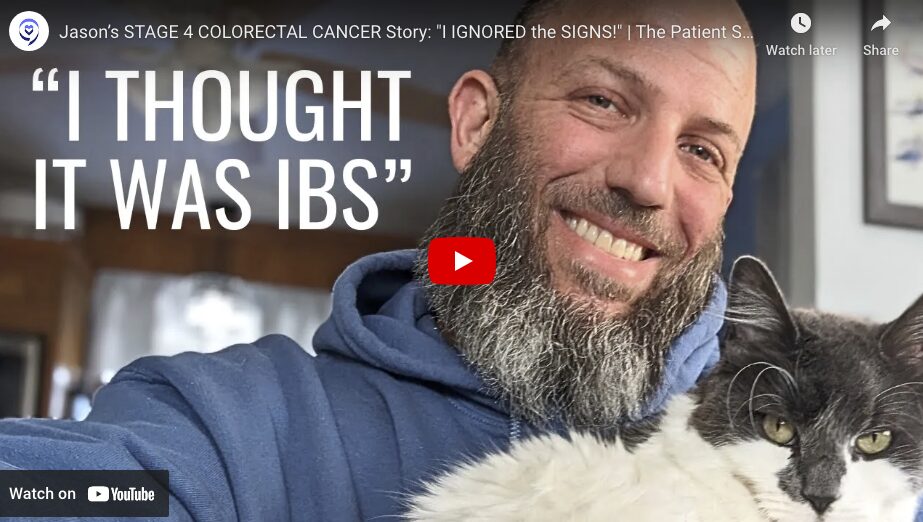
Learn about the key differences between IBS, IBD, and colorectal cancer symptoms to help you find the right guidance and care.
Gender differences in colon cancer symptoms
The main symptoms of colon cancer for either gender are blood in the stool, unintentional weight loss, and either ongoing diarrhea or constipation. While both men and women will experience similar symptoms of colorectal cancer, there are distinct differences in how these symptoms may feel between the genders.
It’s important to recognize that as a woman, you may have some symptoms that are more closely related to gynecological issues that can easily be overlooked. You may be more likely to dismiss symptoms such as bloating, feelings of fullness, and pelvic pain, owing to the proximity of your ovaries and uterus to the colon and rectum. Other conditions such as endometriosis can cause pain, bloating and cramping as well. You should always be aware of pain or discomfort that is different or unusual from what has been a part of your regular menstrual cycle.
Stages of colorectal cancer and their symptoms
Like many cancers, the staging system for colorectal cancer categorizes the disease based on the extent of its spread, providing crucial information for patients and healthcare professionals alike.
As a reminder, earlier stage (0, 1, 2) cancer, there may be no symptoms at all. Stages 0-2 colon cancer symptoms often include: constipation, diarrhea, changes in stool color and/or chape, blood in your stool or bleeding from your rectum, pain and cramping. We’ve collected patient stories for every stage of colon cancer.
Examples of stage 1 colon cancer symptoms and stage 2 symptoms
- Stage 1: Rachel felt nauseous and her stomach felt bloated all the time, then she found blood in her stool.
- Stage 2: Amanda had a “gurgly stomach,” chronic constipation, and as is common – blood in her stool. Learn from her story.
When colorectal cancer advances to stage 3 or 4, the symptoms above can be more pronounced. Additionally, you are more likely to experience fatigue, weakness, unintentional weight loss, and vomiting to name a few.
Examples of stage 3 colon cancer symptoms and stage 4 colorectal cancer symptoms
- Stage 3: Kelly describes symptoms she had while pregnant with her first child, including blood in her stool, constipation, and weight loss. She tells her story of symptoms being dismissed as hemorrhoids and related to her pregnancy.
- Stage 4: JJ describes how abdominal pain turned into issues in the bathroom and then becoming violently sick to his stomach and losing 5 lbs in a week before his stage 4 diagnosis.
Patients describe colorectal cancer symptoms
Stomach pain

Barbara Majeski says she knew something was wrong when she started to feel stomach discomfort, especially after a meal.
I found it really hard to process food. Things were just sitting in my gut. It was starting to get really really uncomfortable.
Then I just started to take out wheat and dairy and puree my foods, getting a real sense of this is not right. We all have intuition. My intuition was like, this ain’t going well.”
Barbara Majeski, Stage 3 Colon Cancer
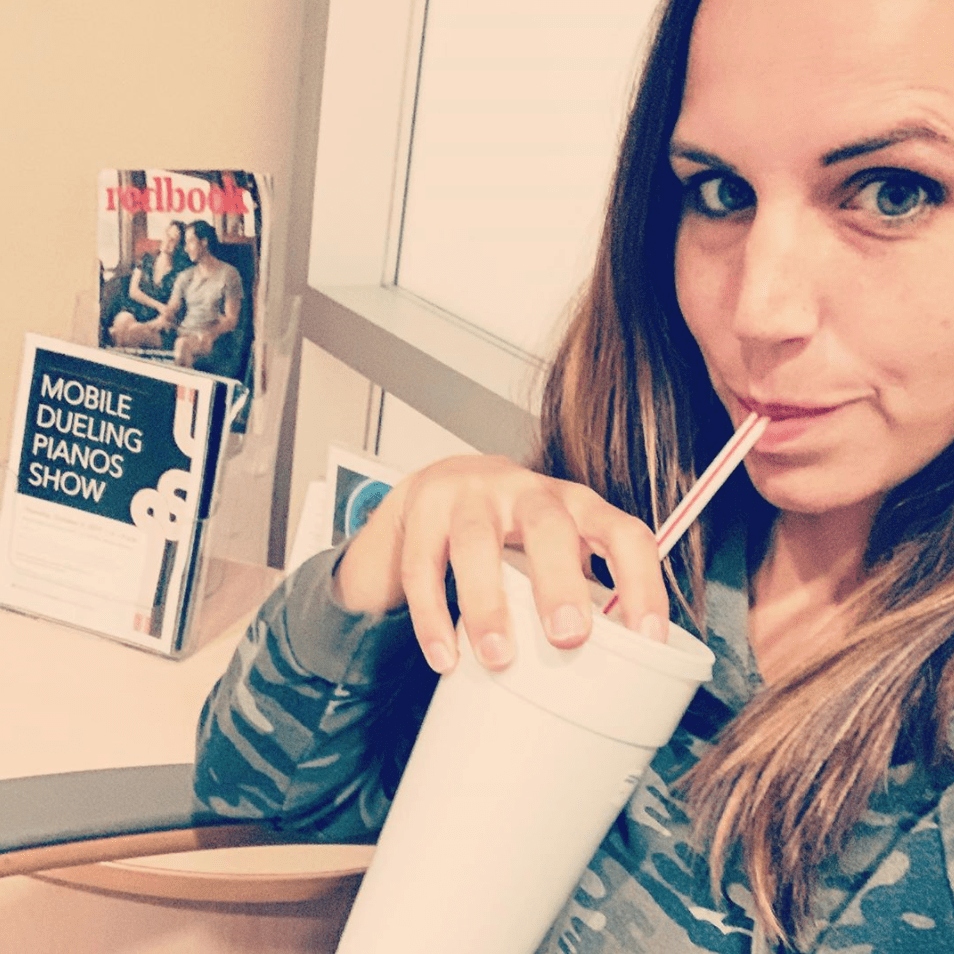
For Shannon Costello, it was also stomach pains that eventually sent her to seek medical attention.
I was having severe pain after I would eat out. 20 minutes after it is just excruciating and I have a very high tolerance for pain. So I thought, you know, maybe it was something with my diet, something wasn’t sitting right…
Then it started getting worse really quickly. Really bad. I was starting to get very tired but I wrote that off as having two young kids and working full time.
Shannon Costello, Stage 2A Colon Cancer
Weight loss
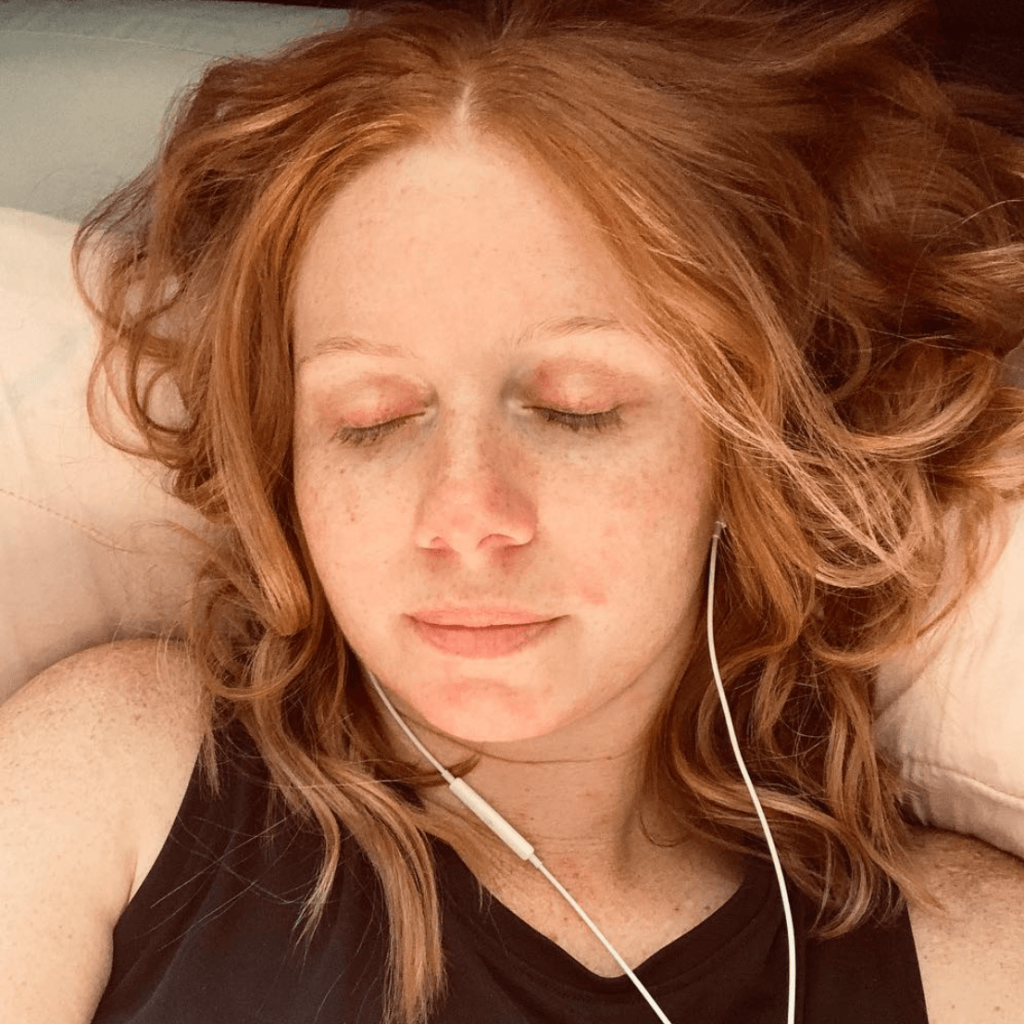
Lindsay Danneker had a few symptoms, like a lump in her pelvic area and food started to smell funny, but it was the weight loss with some pain that really drove her to figure out what was going on.
I usually range about 115 to 120 (pounds). And I had gotten down to like 95 pounds. I dropped a lot of weight really fast and so I knew something serious was happening.
Lindsay Danneker, Stage 4 Colon Cancer

Take our survey and get 10 Tips from Our Community on SYMPTOMS, diagnosis, treatments, and support.
Blood in stool

Rachel Braga says she felt something wasn’t right with her body and her health, but it wasn’t until she found blood during a bowel movement that she realized she needed to see a doctor.
I was nauseous and bloated all the time. My stomach just felt really off.
The straw that broke the camel’s back was finding blood in my stool.
Rachel Braga, Stage 1 Colon Cancer
No symptoms (early screening)
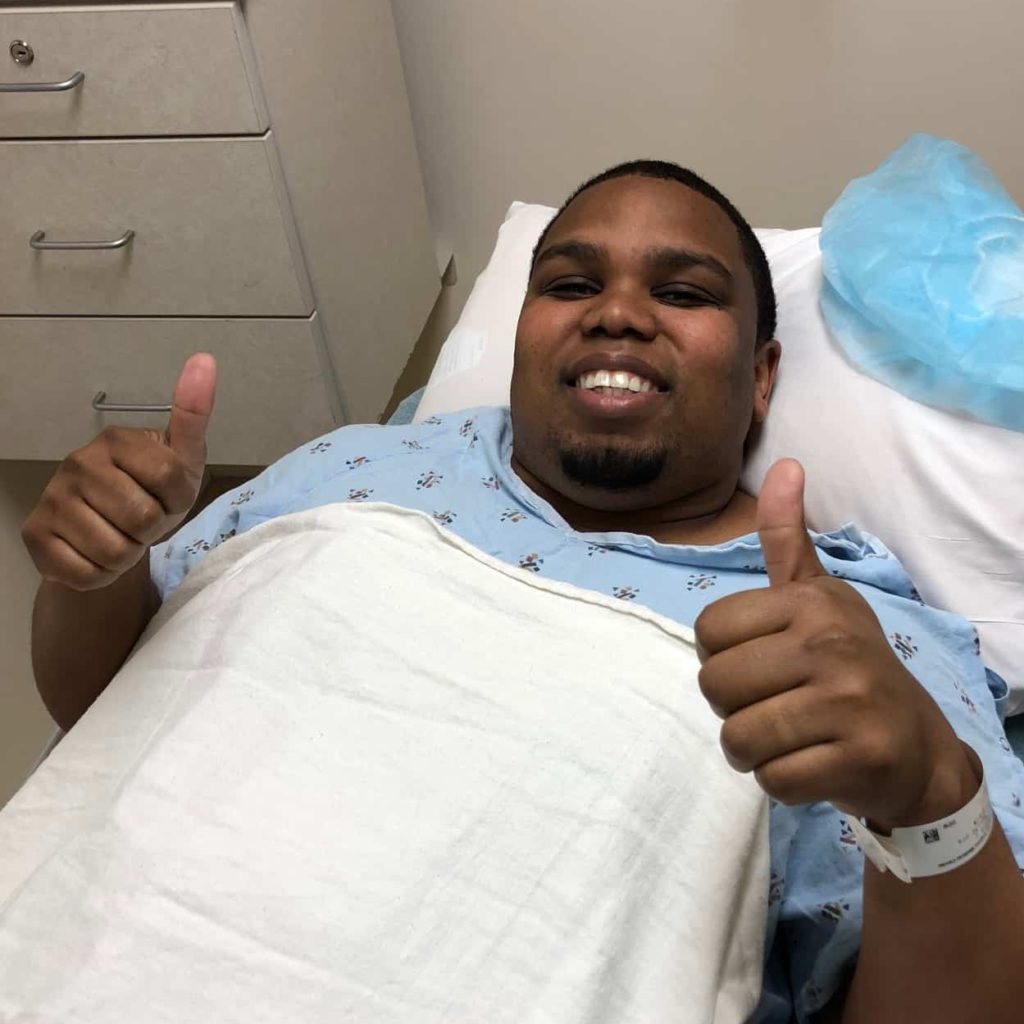
For Chris Tarver, a known family history of cancer helped him understand that he would need to get screening done earlier than usual.
I just went in for that routine colonoscopy, and once they were done, they basically told me I had colon cancer and they didn’t know the stage or anything because at that point, I didn’t have scans.
Chris Tarver, Stage 2 Colon Cancer
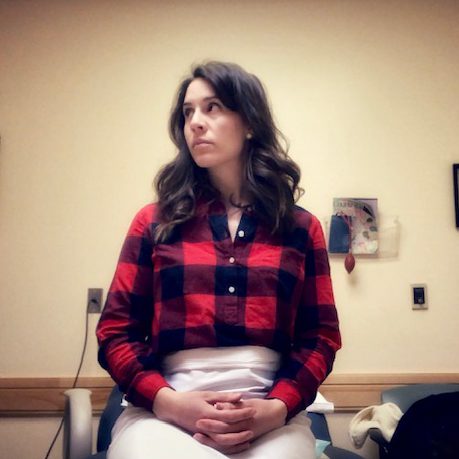
My story might be a little different in that I didn’t have any symptoms. I didn’t know anything was wrong. I had just turned 36, and my daughter had just turned one.
I was going in for a routine colonoscopy because I have something called Lynch syndrome, which is a genetic mutation that puts me at really increased risk for a lot of different cancers. Colon cancer is one of them.
I’d just had one a year before, but it was clear. I was pretty shocked to find out the next one wasn’t quite normal. The process went from there.
Shannon Mercurio, Stage 1 Colon Cancer, Related to Lynch Syndrome
Rectal cancer symptoms
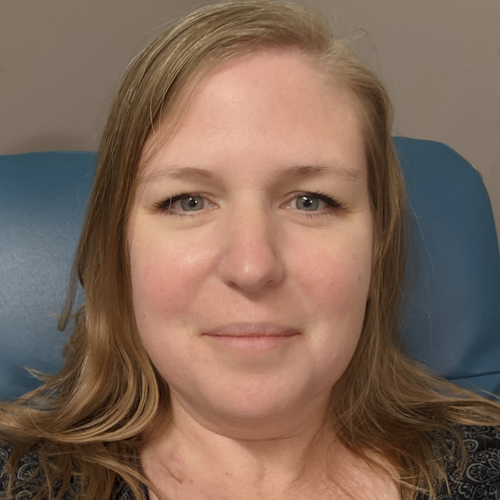
Hemorrhoids and rectal cancer are two extremely different conditions, but they share some common symptoms. Ananda describes worsening symptoms leading to a colonoscopy. Watch as she explains her rectal cancer symptoms and how she advocated for screening.
“With your history of having all these babies, I’m so sure it’s hemorrhoids. Your risk of getting cancer at this age is so slim…If it doesn’t clear up, come back and see me.”
Ananda, Stage 3B Rectal Cancer
Additional References:
